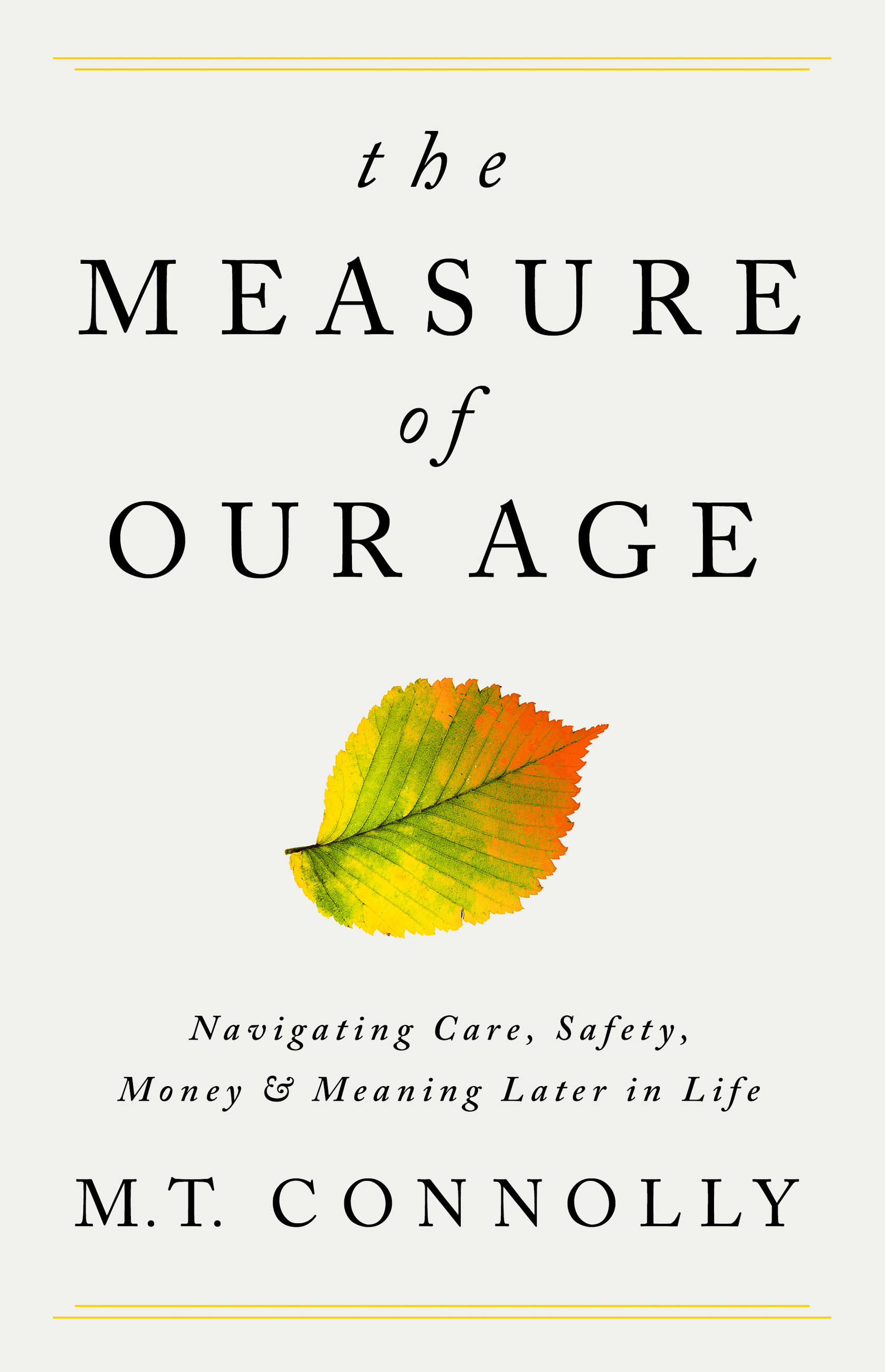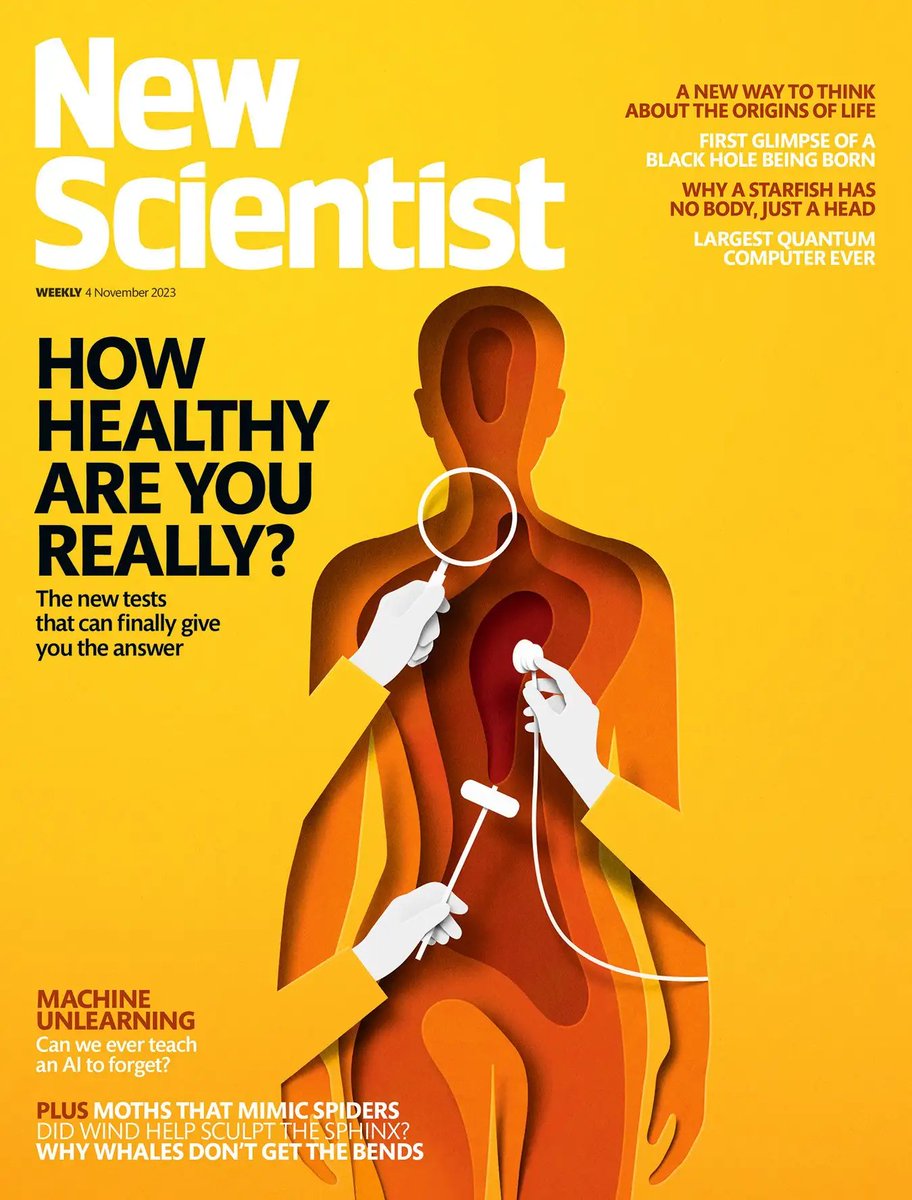
New Scientist Magazine (February 22, 2024): This issue features ‘The Human Brain’ – How it works, why it fails and the secrets to using it better…

New Scientist Magazine (February 22, 2024): This issue features ‘The Human Brain’ – How it works, why it fails and the secrets to using it better…
CBS Sunday Morning (February 18, 2024): This isn’t your grandfather’s old age. CBS News chief medical correspondent Dr. Jonathan LaPook talks with experts about the distinctions between normal and abnormal aging as it affects memory issues, a workforce continuing beyond traditional retirement age, and the testing of surgeons who currently work without age limits.
WIRED (November 13, 2023) – Dr. Jeffrey Laitman joins WIRED to break down how our organs and body parts age from head to toe. From hearing and hair loss to sagging skin and deteriorating joints, Dr. Laitman highlights the impact of aging on the human body—and what we can do about it.
Director: Lisandro Perez-Rey; Director of Photography: Francis Bernal

The Wall Street Journal (November 10, 2023) – There was plenty to learn from and entertain—including the third novel of a Richard Russo trilogy and a podcast with Julia Louis-Dreyfus

By Harvard Business Review | Harvard Business Review Press (256 pages)
What sets this retirement guide apart from others is the perspectives brought by the contributing writers. In addition to presenting case histories and addressing the best ways to assess your life goals and financial needs, the authors discuss specific steps to help you think about encore careers in coaching, consulting or teaching; practical tips for coping with different stresses; and how to view the career you’re leaving as a period of “preretirement” to help you evaluate what comes next.

By Abigail Thomas | Golden Notebook Press (196 pages)
Veteran book editor, agent and author Abigail Thomas begins her third memoir with the observation that at 80, her thoughts can sometimes be “interrupted by a memory so vivid that I am in two places at once.” Perhaps a jarring thought to some, but to Thomas, such moments can be “an inexpensive, unpatented, readily available form of time travel,” and readers who choose to accompany her will be rewarded.
Funny gripes, wistful reflections, rueful memories and realizations about aging fill these pages. Some of the best entries are about her days as a single mother of three living in Greenwich Village and protesting the Vietnam War. “The times that were a-changing have changed,” Thomas writes, “but for a little while I’m going to ignore what went off the rails, and let myself remember what innocence and hope felt like.”

By Richard Russo | Knopf (464 pages)
The closing piece of the “North Bath” trilogy by Pulitzer Prize-winner Richard Russo is a wondrous novel that captures the changing pace of small-town life in the 21st century. The setting once again is a fictional, blue-collar community in upstate New York whose senior residents must grapple not only with the daily indignities of financial troubles and aging bodies, but with intrusions from the inhabitants of a more-prosperous neighboring town.
No worries if you are new to these books. You can jump right in to enjoy the fun even if you haven’t read the previous two (“Nobody’s Fool” and “Everyone’s Fool”). You can also expand your immersion in Russo’s world by streaming the 1994 movie of “Nobody’s Fool,” starring Paul Newman in an Oscar-nominated role.

By M.T. Connolly | PublicAffairs (384 pages)
In this compassionate book, M.T. Connolly, founding head of the Justice Department’s Elder Justice Initiative, lays out many of the problems associated with giving and finding care for seniors in our aging society. And as its subtitle, “Navigating Care, Safety, Money, and Meaning Later in Life,” suggests, she also has ideas for solutions to help avert a worse crisis.
Connolly draws on research, interviews and her own experience to explore these issues. “Our norms and systems have not kept up with our longevity, sometimes with terrible, and usually preventable, consequences,” she writes. She is optimistic, however, that “change is possible—and some is even under way” on community, federal and individual levels.
One thing that needs to continue, she writes, is “increasing our capacity to make meaning of aging, and of our fleeting time on Earth, by paying more attention to the power of purpose, curiosity, stories, awe, and love.”
By Dr. Gladys McGarey | Atria Books (256 pages)
To remain healthy in mind and body, consider the wisdom of Dr. Gladys McGarey, still a consulting physician at the age of 102, and co-founder of the American Holistic Medical Association. McGarey sums up her approach to life in six lessons, hence the book’s subtitle: “A 102-Year-Old Doctor’s Six Secrets to Health and Happiness at Every Age.” We won’t list them, and they are probably not what you would expect.
Based on her own experience—some of it difficult and emotionally draining—she places huge importance on the ability to regain perspective and purpose after a physical illness or crisis. This is essential for healing, medically and emotionally, says McGarey, whose own life story reveals she has had to practice what she preaches. At 69, she had to find a new path when her husband and medical partner of 46 years left her for a younger woman.
The Economist (November 2, 2023) – As the most complex organ in your body, your brain changes radically throughout your life. Starting from before birth and continuing even after you’ve died. This is what happens to your brain as you age.
Video timeline: 00:00 – What happens to your brain when you age? 00:32 – In the womb 01:03 – Childhood 03:19 – Teenage years 04:48 – Early adulthood 05:27 – Middle age 07:04 – Later life 07:36 – Death

New Scientist Magazine (November 4, 2023): This issue features How healthy are you really? – New tests to give you the answer; The origins of Life; Machine Unlearning – Can we ever teach an AI to forget?; Moths that mimic spiders; Did wind help sculpt the Sphinx; and more…
Record-breaking quantum computer has more than 1000 qubits
The Great Sphinx of Giza may have been blown into shape by the wind
Strange supernova blasts hint we have glimpsed a black hole’s birth
Some insects disguise themselves as spiders to avoid getting eaten
Starfish don’t have a body – they’re just a big squished head

New Scientist Magazine (October 7, 2023): This issue features ‘You And Your Microbiome’; How the microbiome changes our idea of what it means to be human; The best way to care for your microbiome to keep it healthy as you age; and more…
‘Editor’s Picks’ Podcast (October 2, 2023) – A selection of three essential articles read aloud from the latest issue of The Economist. This week, the search for the antidote to ageing, why a bigger EU is a better EU (11:30), and Japan’s world-leading toilet culture (25:30).
TECHNOLOGY QUARTERLY (SEPTEMBER 27, 2023) – The new issue features ‘In search of forever’ – Slowing, let alone reversing, the process of ageing was once alchemical fantasy. Now it is a subject of serious research and investment, Geoffrey Carr reports.

And some of it is making progress, writes Geoffrey Carr
“All my possessions for a moment of time.” Those, supposedly, were the last words of Elizabeth I, who as queen of England had enough possessions to be one of the richest women of her era. Given her patronage of alchemists—who searched, among other things, for an elixir of life—she may have meant it literally. But to no avail. She had her last moment of time in March 1603, a few months short of the three score years and ten asserted by the Bible to be “the days of our years”.

And various existing medicines may offer similar benefits
In 1991 eight volunteers sealed themselves into a huge greenhouse in the desert near Tucson, Arizona. They were part of an experiment seeking to discover whether a carefully curated selection of plants and animals could develop into a self-sustaining ecosystem: a “Biosphere 2” independent of “Biosphere 1”, aka the outside world.

New Scientist Magazine (August 26, 2023): This issue features ‘Reclaim your Privacy’ – The alarming new ways you’re being tracked online and more…